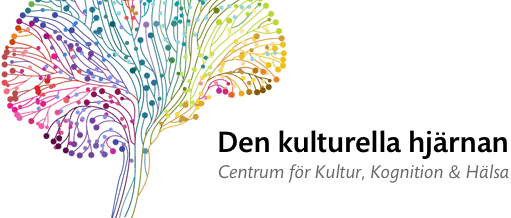Here is is list of some of the most important centres for worldwide research connected to culture, the brain, health and teaching:
 |
Fredrik UllénFredrik Ullén is a Director of the Max Planck Institute for Empirical Aesthetics in Frankfurt, and Professor of Cognitive Neuroscience at Karolinska Institutet. His research focuses on the neuropsychology of expertise and creativity, i.e. the various brain mechanisms that allow us to perform at a very high level within a specific field, using music as a model domain. Methodologically his team combines neuroimaging with experimental psychology and behavior genetic analyses. He is currently heading a larger research programme, Humans Making Music, that involves collaborations with the Swedish Twin Registry and other research groups both within and outside Sweden. In addition to his career as a scientist, Professor Ullén is active as a professional pianist. He has performed as a soloist in leading festivals and concert venues in most European countries, Canada, and the US. He is represented on more than 20 CD records, many of which have received outstanding critics and awards from the international press. Professor Ullén is a lifetime fellow of the Swedish Royal Academy of Music since 2007.
|
 |
Harvard: The Institute for Music and Brain ScienceThe Institute for Music and Brain Science. based at Harvard Medical School (Massachusets), is a whole institute founded specifically for music and the brain research. Dr. Christina Hinton is the Founder and CEO of Research Schools International and a Research
|
 |
Baltimore: Neuro Education Initiative
|
 |
Illinois: Northwestern UniversityNina Kraus leads The Auditory neuroscience laboratory at Northwestern University in Evanston, Illinois. She is a scientist, inventor, and amateur musician who studies the biology of auditory learning
|
 |
Montreal: BRAMSBRAMS is a research centre for the Brain, Music and Sound in Montreal, Canada. Among other discoveries, Robert Zatorre (at McGill-University) has shown that different areas of the brain are active in anticipation of a piece of music’s climax, and Isabelle Peretz (photo), at the international laboratory at Montreal University who has, among other things, shown that music can have a drastic pain reducing effect.
|
 |
Ontario: McMaster UniversitetLaurel J Trainor is is director of the Auditory Development Lab and MIMM at McMaster University, where researchers and musicians work together to study the effects of dance and music on health.
|
 |
California: The Brain and Creativity InstituteThe Brain and Creativity Institute is located at the University of Southern Califonia (USC). There Antonio Damasio and Hanna Damasio (photo), have conducted a lot of research about how the brain works with feelings and decision making. Assal Habibi is an Assistant Research Professor of Psychology at the Institute and her research takes a broad perspective on understanding child development. Mary Helen Immordino-Yang at USC Rossier studies the science of social emotion, self-awareness and culture and their implications for development and schools.
|
 |
Nashville: Vanderbilt UniversityReyna Gordon directs the Vanderbilt Music Cognition Lab at Vanderbilt University and serves on the Board of the Society for Music Perception and Cognition. Her research focuses on the role of rhythm in language development and disorders from behavioral, cognitive, neural, and genetic perspectives.
|
 |
Charles Limb
|
 |
Denmark
|
 |
Kira Vibe Jespersen
|
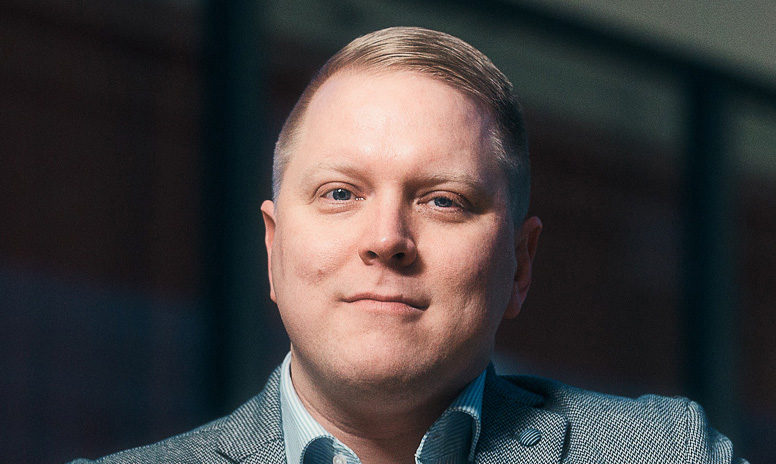 |
Finland
|
 |
GermanyFredrik Ullén is a Director of the Max Planck Institute for Empirical Aesthetics in Frankfurt and studies how the brain is effected by making music. He is currently heading a larger research programme, Humans Making Music, that involves collaborations with the Swedish Twin Registry and other research groups both within and outside Sweden. Also at the Max Planck Institute for Empirical Aesthetics is Daniela Sammler, who’s research focuses on the brain’s response to music. Former director Winfried Menninghaus researches philosophical, empirical (psychological) and evolutionary aesthetics. In Berlin Stefan Koelch (photo) and his colleagues study the musical brain. Tom Fritz at the Max Planck Institute in Leipzig researches how we experience music, and also Angela Friederichi, who studies language and the brain. The Director of IMM (Institution for Music, Drama and Media) in Hanover is Eckart Altenmüller.
|
 |
Great BritainIn London Psychologists and Neuroscientists collaborate in the Musik, Mind and Brain Group to discover how the brain and nerve system work when we perform and enjoy music. At Cambridge University The Centre for Neuroscience in Education is located, where Usha Goswami is director. At University College in London (UCL) Semir Zeki studies neuroesthetics and neurobiology. Charles Spence is the head of the Crossmodal Research Laboratory at Oxford University. He studies how our brains manage to process the information from each of our different senses (such as smell, taste, sight, hearing, and touch).
|
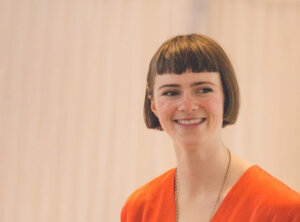 |
Judith Okely – Edinburgh Napier UniversityIn Edinburgh Judith Okely heads the Music in Human and Social Development Research Group and is currently working on a project, funded by the ESRC, exploring the connection between lifetime musical experience and outcomes in later life including cognitive ability, brain health and psychological well-being.
|
 |
Emily Cross – Glasgow UniversityIn Glasgow Professor Emily Cross is director of the Social Brain in Action Laboratory and PI in the project Social Robots. She leads a team that explores experience-dependent plasticity in the human brain and behaviour using neuroimaging, neurostimulation and behavioural techniques. |
 |
Yulia Kovas – Goldsmiths London UniversityIn London Professor Yulia Kovas is director for InLab and co director för the International Centre for Research in Human Development. Amongst other projects, she leads research into the mathematical development of children in the Twins Early Development Study (TEDS) |
 |
Guido Orgs – Goldsmiths London UniversityGuido Orgs is Co-Director of the MSc in Psychology of the Arts, Neuroaesthetics and Creativity and the Science of the Performing Arts (SPA) Lab. His research focuses on the cognitive neuroscience of dance and the performing arts. |
 |
Karen Mak, University College LondonAt University Colloge in London Karen Mak researches the health impacts of the arts using population-based surveys , with a focus on the potential long-term benefits of arts engagement.
|
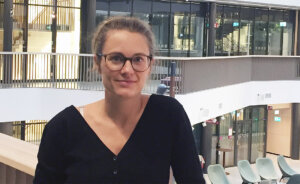 |
SwedenLars Nyberg in Umeå studies how we store memories, and how different activities effect our ability to think as we get older. Torkel Klingberg is based at Karolinska Institutet and studies how learning effects the nervous system. Miriam Mosing (pictured) at Karolinska Institutet and the Max Planck Institute for Empirical Aesthetics in Germany researches the positive effects of the phenomenon flow on mental and cardiovascular health.
|
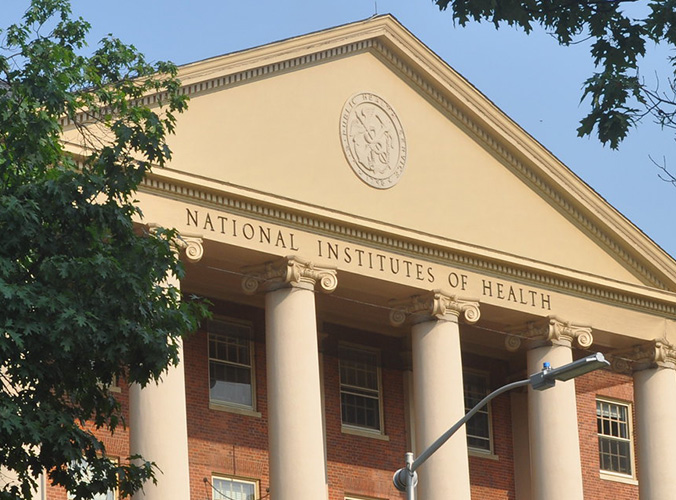 |
NIH Sound and Health intitiativeThe American public health department NIH has during 2020 financed the Sound Health Intitiative for 20 Million Dollars. The intitiative aims to research the potential of music in the treatment of a wide spectrum of neurological and psychiatric conditions. Which projects have been financed? Below is a list with a short summary of each project, more information is on the NIH website. View the Sound and Health Intitiative projects
|
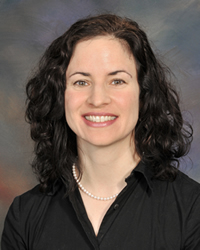 |
Other interesting researchers and groups:Madeleine Hackney (photo) at Atlanta Vision Loss Center researches the healing effects of dance and movement to music. Rumyana Kristeva at Freiburg University heads a group that research Parkinson’s Disease, including dance as a form of treatment. Hubert Dinse in Bochum is interested in how dance effects the cognitative abilities in the elderly. Joan Y Chiao, Northwestern University, Chicago, studies the pychological and neurological processes behine feelings and our daily interaction with other people |
There are some fantastic pedagogical presentations of modern research on the intersection between culture, the mind, learning and health worldwide. Here are a few of our favourites:
How The Brain Is Affected By Art
At The American Congress of Rehabilitation Medicine (ACRM), one of our interdisciplinary groups is Arts & Neuroscience Networking Group (ANNG) and it’s mission is to build awareness for the application of arts and neuroscience in rehabilitation. How does creativity function in the brain? How can it help those working in rehabilitation medicine better serve their patients?
Read more about this group on the ACRM website
Neuroscience & the Classroom: Making Connections
This video course for K-12 educators acquaints teachers with current neuroscience research that they can apply in their own classrooms.
More than 40 videos available online
Your Brain on Books: 10 Things That Happen to Our Minds When We Read
Any book lover can tell you: diving into a great novel is an immersive experience that can make your brain come alive with imagery and emotions and even turn on your senses. It sounds romantic, but there’s real, hard evidence that supports these things happening to your brain when you read books.

